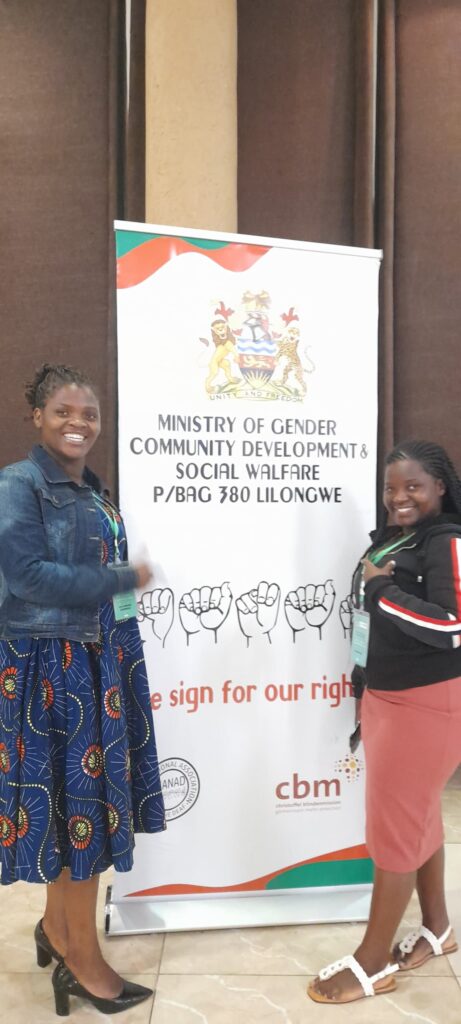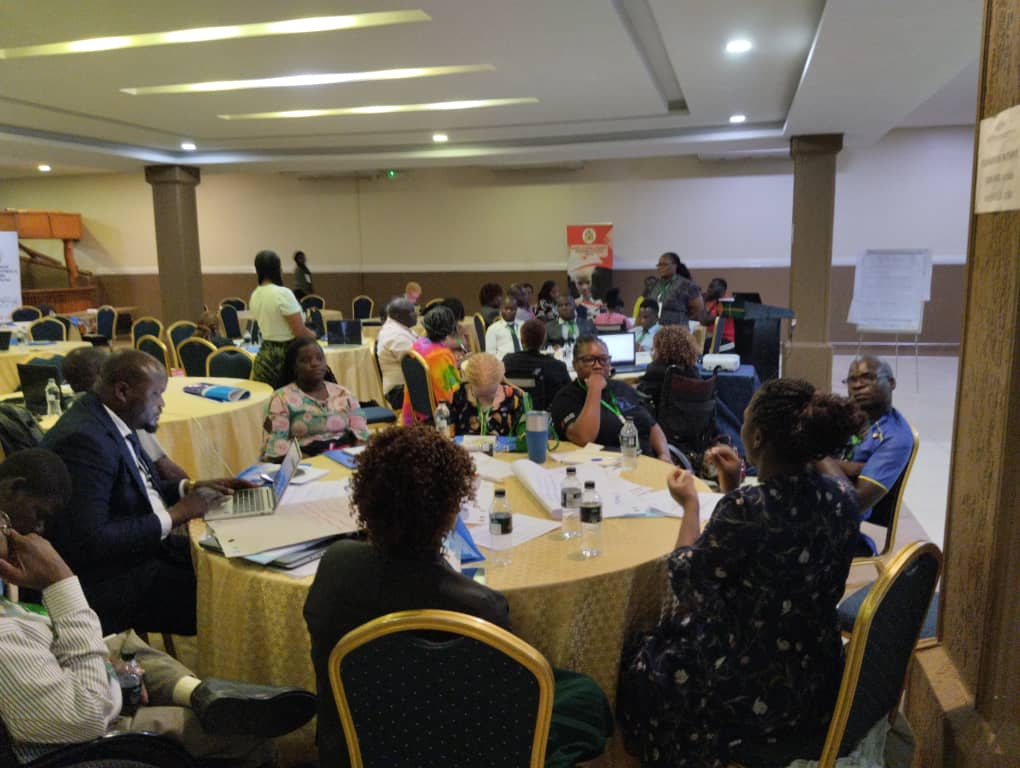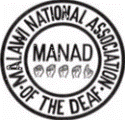
Malawi National Association of the Deaf participated in the UN Partnership on the Rights of Persons with Disabilities (UNPRDP) induction training workshop. The workshop was hosted by the Malawi Government, through the Ministry of Gender, Community Development, and Social Welfare, which collaborated with UNICEF and other United Nations agencies. The UNPRDP induction training workshop took place from October 7-11, 2024, at Crossroads Hotel in Lilongwe. MANAD was represented by the Dedza branch chairperson, Miss Kettie Mwamvani, who is a holder of a Bachelor’s degree from the University of Malawi. a member of MANAD.
Mwamvani describes the UNPRPD induction training workshop as a significant step towards advancing disability inclusion in Malawi, demonstrating progress towards promoting equal opportunities.
She said that the objective of the workshop was to enhance the Organizations of Persons with Disabilities (OPDs) and the other stakeholders’ understanding of the Convention on the Rights of Persons with Disabilities (CRPD) and inclusive Sustainable Development Goals (SDGs) at the national level. During the workshop, various methods were employed, including; expert presentations on disability rights, accessibility, accountability, meaningful participation, gender equality, and non-discrimination of girls and women with disabilities, climate change, mainstreaming services, and other topics. The groups had panel discussions on CRPD and disability inclusion issues (scenarios) and challenges.
However, being a MANAD representative at the workshop, deaf issues were highlighted. It was indicated that there is need for a reasonable accommodation, where, sign language interpretation should be used to facilitate communication between the deaf and the hearing, especially in public works and mainstream inclusive education systems. There is a need for deaf women to be in decision-making positions.
Mwamvani indicates that the workshop was a success. This strengthened the partnership between MANAD and the government, UN agencies, other OPDs, different stakeholders, and civil society organizations. It has enhanced the capacity of the OPDs to tackle articles in the UNCRPD documents.
Despite the successes, there were some challenges. There was no enough time for the activities. Some facilitators had little knowledge on deaf issues, for example, they used abolished terminologies like “hearing impairment.” There was inadequate engagement where at some times, the facilitators failed to explain and respond to some points raised by participants.
She recommends that disability should be integrated and considered into climate change policies and actions. Strengthen deaf assessment and referral mechanisms; Ensure accessibility of the deaf by recognizing gender and involving women and girls in all aspects of development programming.

